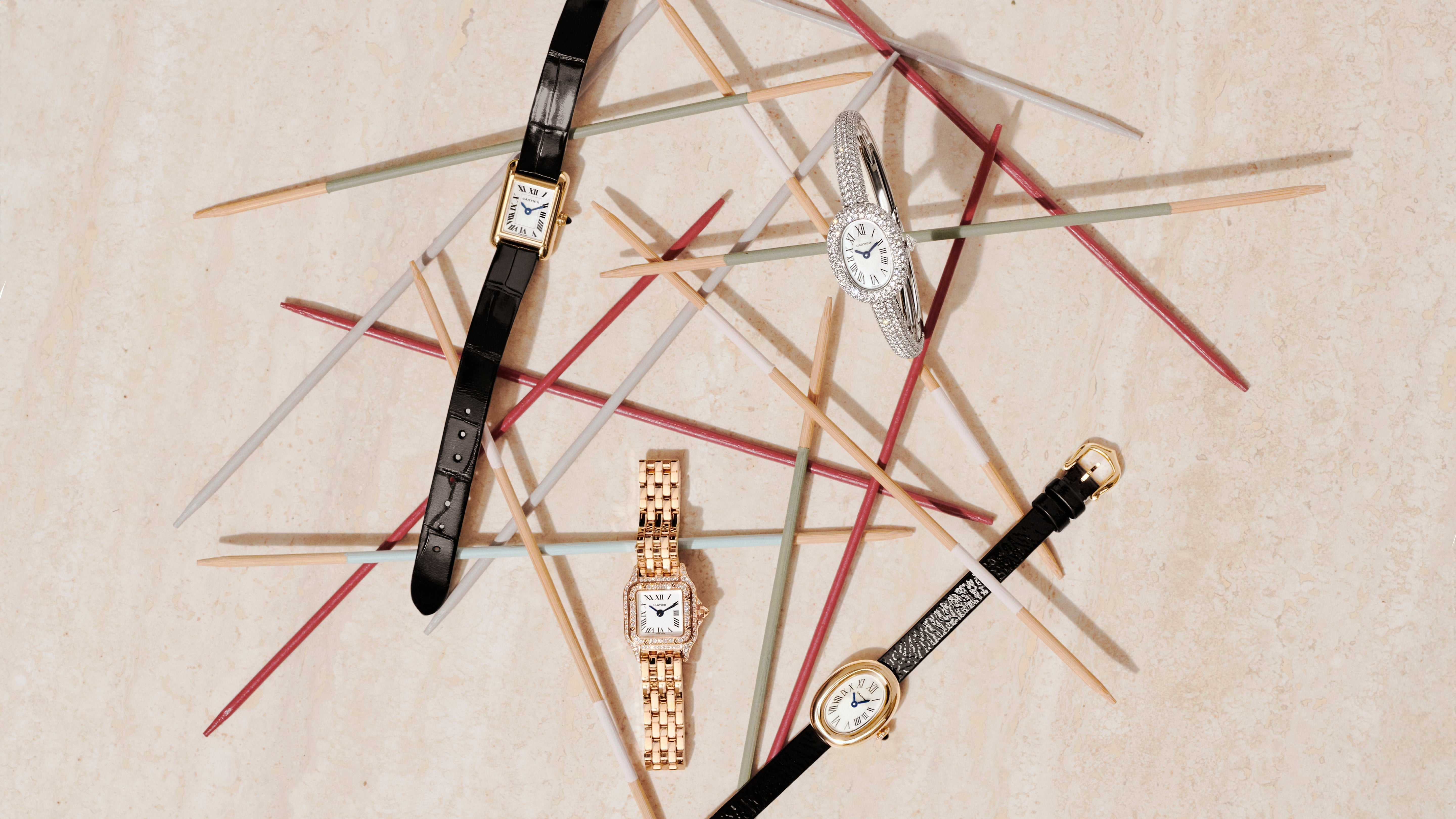Quartz watches revolutionized modern watchmaking thanks to their precision, reliability, and affordability. Introduced in the 1960s, they represented a turning point in the history of timekeeping, replacing the mechanical and automatic watches that had dominated the industry until then.
Understanding what a quartz watch is , how it works, and how it differs from automatic movements allows us to appreciate not only their technology, but also the role they have had and continue to have in contemporary fine watchmaking.

What does quartz watch mean?
The definition of a quartz watch refers to a timepiece that uses a quartz crystal as the regulating element of its movement. Unlike mechanical watches, which rely on gears and springs to operate, quartz watches exploit the mineral's piezoelectric properties to keep time with extraordinary precision.
In simple terms, when we talk about a “quartz watch”, we mean a watch powered by a battery that sends energy to an electronic circuit and, through quartz, regulates the oscillations that determine the movement of the hands or the digital display .

The quartz watch revolution: a bit of history
Quartz watches made their appearance in the late 1970s , at a time when traditional watchmaking was dominated by mechanical and automatic movements. The first model intended for the general public was presented on December 25, 1969, by the Japanese company Seiko : the famous Astron , capable of offering a precision that had previously been unthinkable.
This innovation marked the beginning of what is now remembered as the "Quartz Revolution ," a phase that radically transformed the industry, making timekeeping more accessible and reliable. In the years that followed, Swiss watchmakers also began experimenting with this technology, creating models that would combine elegance, refined design, and cutting-edge technology, and which still today testify to the indelible mark quartz has left on the history of watchmaking.

How does a quartz watch work?
The how a quartz watch works It is based on a physical principle known as piezoelectric effect . When an electrical voltage is applied to a quartz crystal, it vibrates at a constant, very high frequency, typically 32,768 oscillations per second.
The electronic circuit translates these vibrations into regular pulses, which are sent to the watch's stepper motor. This, in turn, moves the hands with extreme precision, allowing for an average deviation of just a few seconds per month.
Advantages of quartz watches
Quartz watches have numerous advantages that have made them successful worldwide and that still make them a popular choice even in haute horlogerie contexts. Here are some of them :
-
Precision : thanks to the oscillations of the quartz crystal, these watches guarantee extremely accurate time measurement;
-
Low maintenance : unlike automatic or mechanical watches, which require periodic servicing and lubrication, quartz only requires battery replacement every few years;
-
Reliability : With fewer components subject to wear, quartz watches are more resistant to shocks, vibrations, and changes in position. This makes them practical instruments with consistent performance;
-
Versatility : Quartz movements allow for thinner and lighter cases, opening up a wide variety of designs, from sports models to jewelry watches, without compromising functionality;
-
Affordability : Lower production costs, combined with long-lasting performance, offer excellent value for money, without sacrificing elegance and refinement when included in prestigious collections.
Differences between quartz and automatic watches: what's the difference?
The comparison between automatic watches and quartz watches is one of the most common among enthusiasts and collectors. Let's look at their differences:
-
Power source : Automatic watches are powered by the movement of the wrist, while quartz watches are powered by a battery;
-
Precision : quartz is generally more precise, with deviations of a few seconds per month, compared to the 5-10 seconds per day of an automatic;
-
Maintenance : Automatic movements require periodic servicing, while quartz movements almost exclusively require battery replacement;
-
Perceived value : The automatic watch is a symbol of tradition, craftsmanship and luxury, while the quartz is more associated with innovation, modernity and practicality.
The differences between quartz and automatic watches , therefore, are not only about technology, but also about the philosophy they represent.
Why choose a quartz watch?
The choice of a quartz watch can depend on several factors. Those who prefer the absolute precision and convenience of a watch that doesn't require daily maintenance will find quartz an ideal solution . The lightness of the movements, their reliability, and the ability to maintain consistent performance in any environmental condition make them extremely functional instruments.
Furthermore, quartz movements allow for the creation of thin, lightweight watches with a modern design, expanding the stylistic possibilities compared to more complex and bulky mechanical calibers.

Luxury quartz watches: tradition and innovation
Although often perceived as more “accessible” timepieces, there are also luxury quartz watches , made by renowned brands that have managed to combine quartz technology with fine materials and iconic designs. Brands such as Cartier , Bulgari , and Girard-Perregaux They produced quartz models that have entered the history of watchmaking, demonstrating that refinement is not the exclusive prerogative of mechanical movements.

These models represent a sophisticated choice for those seeking the reliability of a quartz watch without sacrificing the prestige and intrinsic value of a watch designed by the great houses of fine watchmaking.

Quartz watches available on Pisa 1940
Quartz watches embody the intersection of technology and design, offering precision, practicality, and a versatility that continues to make them relevant, even in the luxury sector. Understanding what a quartz watch is and how it works allows us to fully understand its role in the history and present of watchmaking.

To meet the needs of collectors and enthusiasts, Pisa 1940's selection offers luxury quartz watches from top international brands.

